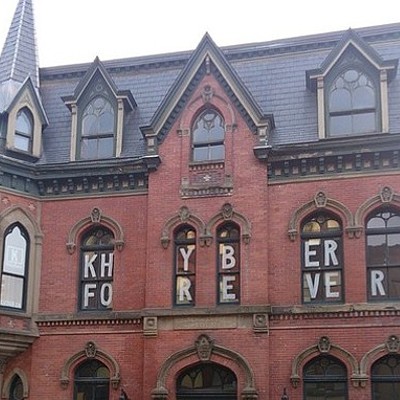Secondhand is not sleight of hand, or a scam, says Charlene Croft.
"I've always bought, sold and traded stuff to supplement income," offers the co-owner and operator of Book of Joe, a vendor at Harbourview Weekend Market (in the former Value Village location on Canal Street, Dartmouth). Book of Joe sells secondhand books, vinyl records, movies, art, retro dolls and toys and kitsch, including retro-fitted items such as fridge magnets fashioned from pages of damaged books. Croft and her colleagues aim to further "diversify" their stock to include, for example, classic videogames.
Now, as she researches the possibility of opening a Book of Joe storefront to be located in downtown Dartmouth, Croft has discovered two bylaws whose thrusts have taken her aback.
"If you engage in the buying and selling of anything, including antiques, you are required to have a licence," says Croft, referring to bylaw J-101, which pertains to "the licensing of junk dealers, secondhand dealers [sic] and pawnbrokers."
The bylaw has no equivalent in Halifax, Bedford or Sackville, she points out. The licence costs $400 and it must be renewed every year. But Croft is offended by the lumping-in of the three businesses, particularly the association of secondhand goods as junk. Also, the licence comes with other heavy-handed provisions.
For example, Section 8(1), states: "Every junk dealer, secondhand dealer and pawnbroker shall file records, in the form attached hereto as Schedule "A", with the Chief of Police of the City." Schedule "A" is appended to the bylaw. It requires the type and description of each item, the date and time received, the name, height, weight, address and the "nationality" of the person who was selling it and must be filed weekly.
Croft plans to apply for a licence. "We've connected with a lot of people in the neighbourhood," she says, adding, if they opened a store, "the community would support us."
Croft is also confounded by the Land Use Bylaw for Downtown Dartmouth. Firstly, it defines a "secondhand shop" as "a building or part of a building in which used goods, merchandise, substances, articles or things are offered or kept for sale. This is deemed to exclude used bookstores, antique stores, sports-card shops, used-clothing stores, and the sale of used bicycles as an accessory to a new bicycle shop or repair shop."
"Sports cards and not music? That seems weird to me," says Croft, pointing out that objects need be 80 years or older to be called antiques. Secondly, permitted commercial uses of space in the "Downtown Business District Zone" are outlined as follows: "Any retail, business, office, entertainment or service use excluding automotive service and repair outlets, vehicle sales, outdoor display courts...and drive-through establishments, cabarets, adult entertainment, pawn shops, secondhand shops...and any obnoxious use."
If you reconcile the definition of a "secondhand shop" and the permitted commercial uses, you realize Book of Joe, as a potential secondhand shop in downtown Dartmouth could sell used books and clothes, but not music, movies, toys or kitsch. Similarly spirited and established stores exist elsewhere in the HRM. What's more, Croft says, they are sustainable businesses that "reflect the human scale of development," a stated goal of Dartmouth's Land Use bylaw. District 5 councillor Gloria McCluskey was unavailable for comment, having returned from hospital after knee surgery. Croft contacted her last month, but the councillor only offered to send her copies of the bylaw, she says. Tim Olive, executive director of the Downtown Dartmouth Business Commission, didn't respond to requests for comment.













